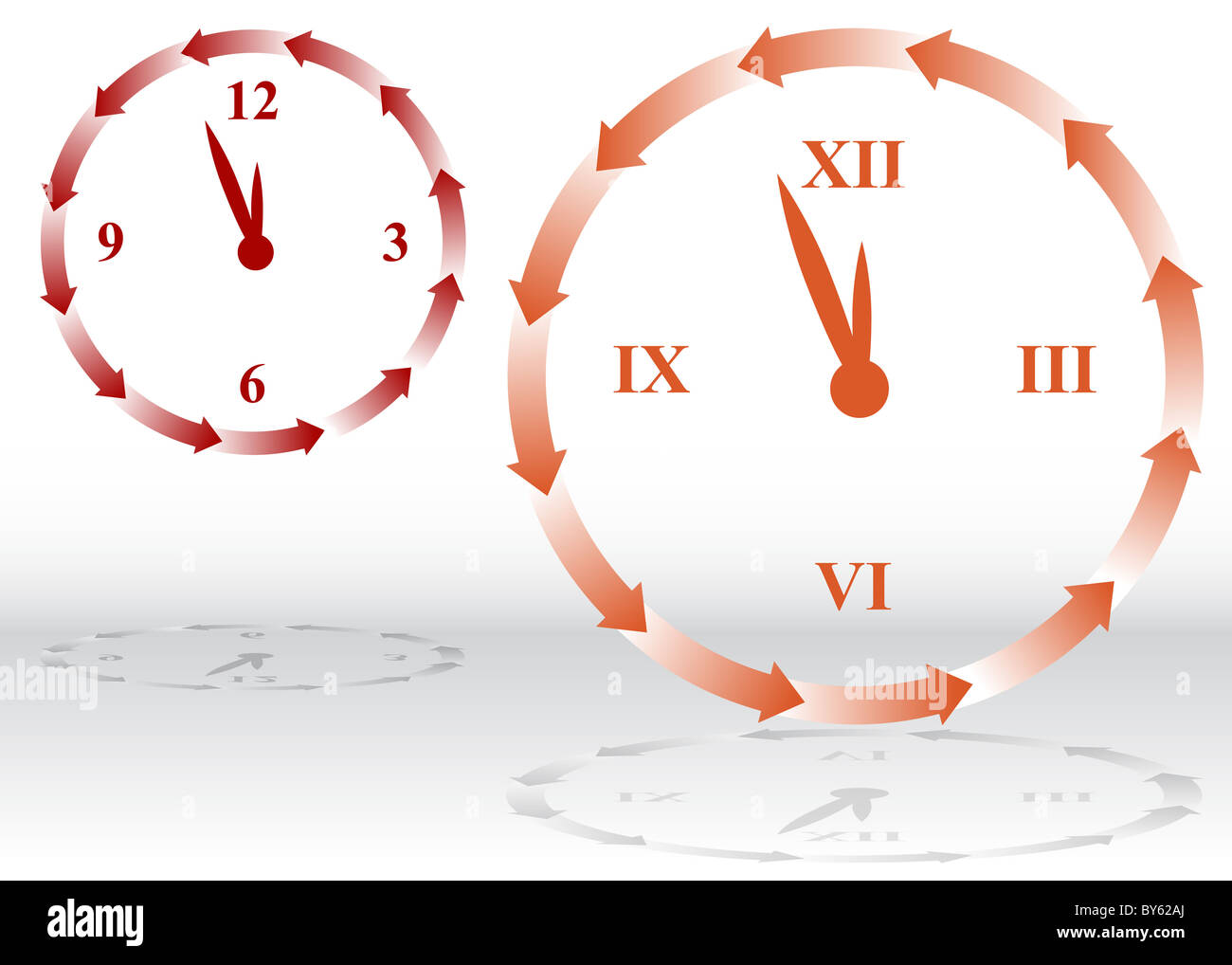Exemplary Info About Can We Go Backwards In Time

Why Can't We Go Backwards? YouTube
The Allure of Rewinding the Clock
1. A Timeless Question
Ever find yourself wishing you could undo something? We all have those moments! Maybe you blurted out the wrong thing during a presentation, or perhaps you regret not buying that limited-edition donut. The desire to rewind and make a different choice is practically universal. But the real question is: Is it even remotely possible to, shall we say, engage in a bit of temporal backpedaling? Can we go backwards in time?
The idea of time travel, especially journeying into the past, has captivated imaginations for generations. From H.G. Wells's "The Time Machine" to the "Back to the Future" trilogy, the concept is a fertile ground for storytelling. But these are works of fiction. What does science have to say? Well, things get a little complicated, and maybe a little weird.
When we delve into the realm of physics, we encounter concepts like Einstein's theory of relativity, which revolutionized our understanding of time and space. Einstein proposed that time isn't a fixed, absolute entity but is relative to the observer's motion and the gravitational field they're experiencing. This opened the door, theoretically at least, to the possibility of manipulating time.
So, is there any actual scientific basis for believing time travel to the past is possible? Let's explore some of the prevailing theories and challenges.

Einstein's Relativity and the Twisting of Time
2. Warping Reality
Einstein's theories of special and general relativity are crucial for understanding the possibility of time travel. Special relativity, published in 1905, deals with the relationship between space and time for objects moving at constant speeds. A key consequence is time dilation — the phenomenon where time passes differently for observers in relative motion.
Imagine you're on a super-fast spaceship whizzing around at a significant fraction of the speed of light. To someone on Earth, your time would appear to slow down. This isn't just a theoretical idea; it's been experimentally verified with atomic clocks flown on airplanes. They show a minuscule, but measurable, time difference compared to clocks on the ground.
General relativity, published in 1915, expands on this by incorporating gravity. It describes gravity not as a force, but as a curvature of spacetime caused by mass and energy. The more massive an object, the more it warps spacetime. And this warping can affect the passage of time. Time slows down in stronger gravitational fields. This is why time passes ever so slightly slower at sea level than on a mountaintop, because you're closer to the Earth's gravitational pull at sea level.
These concepts hint at the possibility of manipulating time, but they don't necessarily provide a direct pathway to going backwards. They mostly deal with relative differences in the flow of time, not reversing its direction.

An Image Of A Clock Going Backwards Stock Photo Alamy
Wormholes
3. A Cosmic Shortcut
Wormholes, also known as Einstein-Rosen bridges, are theoretical tunnels that connect two different points in spacetime. Think of it as folding a piece of paper and poking a hole through it — the hole is the wormhole, and it provides a shortcut between two points on the paper that would otherwise be far apart.
The concept of wormholes emerges from the equations of general relativity. If they exist, they could potentially allow for faster-than-light travel, and perhaps even time travel. Imagine entering one end of a wormhole and emerging at a different point in space and time!
However, there are significant hurdles. Firstly, wormholes are predicted to be incredibly unstable, and they would likely collapse almost instantly. To keep a wormhole open, you'd need something called "exotic matter," which has negative mass-energy density. We've never observed exotic matter, and its existence is purely hypothetical.
Even if we could find exotic matter and stabilize a wormhole, there's no guarantee it would be a time machine. It might simply connect two distant points in space. Furthermore, even if it did connect to the past, there could be other constraints preventing actual time travel, such as paradoxes. Which leads us to...

Time Travel Is Going Backwards More Than Just SciFi?
The Paradox Problem
4. Grandfather Paradox
One of the biggest issues with time travel to the past is the potential for paradoxes. The most famous of these is the "grandfather paradox." Imagine you go back in time and prevent your grandparents from meeting. Therefore, your parent would never be born, and consequently, neither would you. So, if you were never born, how could you go back in time to prevent your grandparents from meeting in the first place?
This creates a logical contradiction. Many physicists believe that the universe would somehow prevent such paradoxes from occurring. One possibility is the "many-worlds interpretation" of quantum mechanics. This suggests that every time a quantum event occurs, the universe splits into multiple parallel universes, each representing a different outcome.
So, if you went back in time and tried to alter the past, you wouldn't be changing your past, but rather creating a new branch of the timeline. You'd be creating a parallel universe where your grandparents never met, but your own existence in your original universe would remain unaffected. It's a bit mind-bending, to say the least!
Other theories suggest that the universe has built-in self-correction mechanisms. Perhaps any attempt to alter the past would be thwarted by unforeseen circumstances. Or maybe the laws of physics themselves would prevent any paradoxical situation from arising. Either way, paradoxes pose a significant challenge to the idea of backwards time travel.

Current State of Time Travel Research
5. The Search for Answers
While traveling to the past remains firmly in the realm of science fiction, scientists continue to explore the theoretical possibilities and limitations of time travel. Research focuses on understanding the fundamental laws of physics, searching for exotic matter, and exploring the properties of wormholes and other hypothetical spacetime distortions.
Experiments involving quantum entanglement — where two particles become linked in such a way that they share the same fate, no matter how far apart they are — have also sparked some interest. Some researchers believe that entanglement might hold clues to manipulating spacetime, although any practical applications are still highly speculative.
The truth is, we still have a lot to learn about the nature of time itself. Our current understanding of physics may be incomplete, and future discoveries could potentially revolutionize our understanding of spacetime and open up new possibilities that we can't even imagine today. Even if time travel to the past proves impossible, the pursuit of it pushes the boundaries of scientific knowledge and fuels our curiosity about the universe.
So, Can we go backwards in time? As of right now, the answer is a resounding maybe not. But science is all about challenging what we think is impossible, isn't it?

TAME IMPALA It Feels Like We Only Go Backwards Quote Lyrics Print, Band
FAQ
6. Your Burning Questions Answered
We know you have questions about time travel. Here are some of the most common ones:
Q: If time travel is possible in the future, why haven't we been visited by time travelers from the future?
A: This is a classic question! There are several possible answers. Maybe time travel is possible only under very specific conditions that haven't been met yet. Perhaps time travelers are visiting, but they're very good at blending in. Or maybe there's a temporal prime directive — a rule against interfering with the past.
Q: What's the deal with black holes and time travel?
A: Black holes are incredibly dense objects with such strong gravity that nothing, not even light, can escape them. General relativity predicts that time slows down dramatically near a black hole. Some scientists have speculated that rotating black holes, known as Kerr black holes, might contain wormholes, but this is highly theoretical.
Q: Could we use time travel to solve all of the world's problems?
A: While tempting, this is fraught with danger. As we discussed earlier, altering the past could have unintended and potentially catastrophic consequences. Plus, who gets to decide which problems to solve and how to solve them? It's a recipe for temporal chaos!